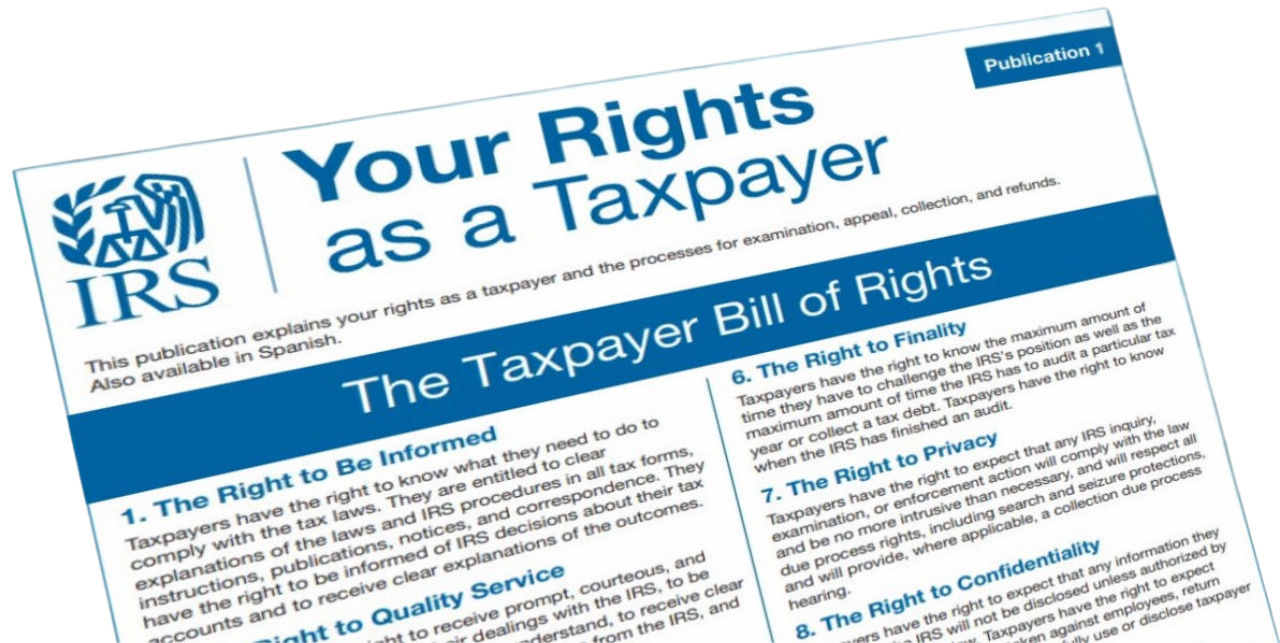Is taxpayer data safe? Is DOGE able to access your tax return information?
An analysis and review of regulations for tax return and return information access.
One cannot unlock their phone, open a web browser, or turn on a television without one of the first words they see being DOGE, as in the Department of Government Efficiency. In its most recent efforts, DOGE has requested access to confidential taxpayer documents within the International Revenue Service. This has raised significant concern from the media, the American public, and tax practitioners. In fact, national organizations (NATP, NAEA) have attempted to respond or call government officials to action, but the overall notices have been minimal and have fallen on deaf ears.
With so much being stated and shared across so many different platforms with an even larger number of sources, it is difficult to interpret and assess exactly where the truth lies. I wanted to take a few moments to clarify what is known, provide historical context, and address remaining uncertainties.
We will be reviewing both DOGE and Elon Musk, inclusive of their current status and the potential legal grounds for accessing certain information. We will also address the larger question as to what privacy and data security rights an American can expect based upon current regulations.
Let’s dive in…
What is DOGE?
DOGE, the Department of Government Efficiency, was established on January 20, 2025 through an executive order. Rather than the formation of a new organization, the United States Digital Service (USDS) was publicly renamed to the USDS, United States DOGE Service. A part of this was assigning a USDS Service Administrator who reports to the White House Chief of Staff. This position resides in the Executive Office of the President. Along side this reorganization was the formation of a temporary organization named “U.S. DOGE Service Temporary Organization” that has a termination date of July 4, 2026. The executive order also directs the head of each agency to establish an internal DOGE team to review, analyze, and implement these directives.
Key points to note:
The USDS (former) website is still active under the former name and does not redirect to the USDS (DOGE) website.
No USDS (DOGE) Service Administrator has been publicly announced.
The USDS (former) was established in 2014 by President Barack Obama as a technology unit within the Executive Office of the President. Its formation was established by Congressional appropriations.
What is Elon Musk’s connection to DOGE and the President?
Along side nearly all press releases and media appearances with the President one can expect to see Elon Musk, tech billionaire, who has been by the side of President Trump over the course of the last few months. What is his official role within the United States government and what authority does he officially have?
According to a Declaration made within the United States District Court of DC, Elon Musk’s employment status is “an employee of the White House Office.” He is labeled as a non-career Special Government Employee (SGE). The SGE role was established by Congress in 1962 and, based upon their official term and status, may or may not be compensated. There are typically about 2,000 SGEs within the government at any point.
His current role within the White House Office has been labelled “Senior Advisor to the President.” This appoints him no greater power or authority than any other senior advisors and awards him no authority to make governmental decisions. His role is only to advise the President. The above Declaration also clearly states that Musk is not the US DOGE Service Administrator.
Does DOGE or Elon Musk have authority to access or view taxpayer data within the Internal Revenue Service?
It was reported through multiple media sources on February 16, 2025 that DOGE was expected to seek access to the systems of the Internal Revenue Service, including the IDRS (Internal Data Retrieval System), the system that allows IRS employees to access taxpayer information. This comes on the foothills of DOGE access to the United States Treasury, where it was reported access was granted by the Treasury Secretary, Scott Bessent, on January 31, 2025. The access was granted under the premise that DOGE would then have the ability to monitor actual government spending. Several injunctions and lawsuits have been filed in connection to the US Treasury access.
Several court cases and lawsuits have arisen since February 16, 2025 with multiple attempts to block DOGE access to the records of the IRS. According to sources in the media and within the White House, an agreement has been reached to only grant a DOGE-connected developer access to the IRS systems.
As this story continues to progress, what is the overall legal standing for providing access to systems within the Internal Revenue Service? For that answer, we review IRC 6103, “Confidentiality and disclosure of returns and return information.” This section was most recently updated on September 9, 2024. This section lays out, in great detail, specific definitions as well as the processes by which tax return data is disclosed. These include disclosures to state and local tax authorities (d), persons of material interest such as spouses, children, etc (e), certain Committees of Congress (f), to the President (g), to certain Federal Officers for Tax Administration (h), Federal Officers NOT for Tax Administration (i), Statistical use (j), for Tax Administration (k), for purposes other than Tax Admin (l), for Taxpayer Identity (m), Certain Other Person (n), for Certain Taxes (o), for recordkeeping (p). Each one of these disclosures comes with significant rights, requirements, and depth of access.
The challenge faced at the moment is not knowing which disclosure is being leveraged, if any. The majority of these disclosures do not require taxpayer notification. Another point of unknown context is if there are any “Internal DOGE Team” members within the IRS, as per the Executive Order’s charge. The Wikipedia site for DOGE does state that Gavin Kliger is the team member associated with the Internal Revenue Service.
One of the disclosures most commonly listed in connection to the DOGE-IRS access is IRC 6103(g)(1), or Disclosure to President and Certain Other Persons. In this disclosure, the President may request a tax return or return information (through a certain clearly defined process). That information may then be handed off to an employee(s) of the White House Office, or certain other Federal Government Appointees. Where this disclosure gets interesting is in 6103(g)(4) places an annual pay rate lower cap requirement. From notations above, while Elon Musk may be an employee within the White House Office, it has been stated he is not compensated which *may* preclude his access; however, that does not mean that another employee couldn’t be assigned who does meet the criteria.
Each of the disclosures face similar scrutiny and, unfortunately, at this point with limited data, there is not a clear indication which, or if, any of the disclosures were properly followed.
Title 26 also includes Section 7216 which sets forth the process for a tax return preparer to disclosure of release information. For purposes of this discussion, 7216 should have minimal to no impact.
If a DOGE (or other employee) were to gain access to any taxpayer-related data, they would be held to the same standards as all federal employees for confidentiality and data privacy. Similar penalties could be assessed to any employee or contractor who assisted in providing the access. Disclosure of this information would come with civil penalties, imprisonment, and more. The recent sentencing of Charles Littlejohn, an IRS contractor, highlights just some of the actions that can be taken against an individual for unauthorized disclosure.
Are we guaranteed data privacy within the federal government, specifically the US Treasury / Internal Revenue Service?
The final question that has been discussed recently is to what level or extent Americans can expect their tax-related data to be secured and kept private.
The Internal Revenue Service faces over one billion cyber-attacks a year and, despite some dated systems and technology, have one of the most advanced security infrastructure within the government. They work closely with tax practitioners who must fall under dozens of security and privacy requirements. They must also comply with the Federal Information Security Modernization Act. Additionally, contractors for the IRS must comply with a series of complex and robust security standards as well.
More so, in 2016, Congress enacted the Taxpayer Bill of Rights (TABOR), a collection of rights assigned to all taxpayers to assist with complying with federal regulations and to ensure fair and equal treatment in dealing with the Internal Revenue Service. Within the TABOR, Right #7 is the Right to Privacy and Right #8 is the Right to Confidentiality. While the TABOR is a great concept and helpful in print, it is not enforceable and has no means for remediation. While the TABOR may appear to be lip service, it does show the intent of the IRS and the charge placed upon the IRS Commissioner. However, there is little the TABOR can do in situations being faced in connection to data access.
As discussed above, IRC 6103 provides the avenues individuals or organizations can pursue to obtain taxpayer data. Outside of those listed and approved disclosures, any release of information would be considered a breach and subject to all of the penalties and consequences therein.
Final Thoughts
The unfortunate situation we face is that the situation is very complex with a lot of information not disclosed. Unfortunately, the way many of the IRS-related disclosures are written, it is very possible for access to be granted without the individuals’ knowledge. As we discover more information, we will share it out.
[Data is found to be collected and sourced through reliable sources as of 2/21/2025.]
[Rumors or statements reported by multiple sources are indicated but not sourced until confirmed.]
Financial Guardians has partnered with NATP to provide access to our monthly Guardian Tier membership at a 30% discount.
Active NATP members can access the online discount here.
Financial Guardians has partnered with NAEA to provide access to our monthly Guardian Tier membership at a 30% discount.
Active NAEA members can access the online discount here.
Financial Guardians is a proud member of InCite, the recently launched online community exclusively for tax professionals, bookkeepers, and accountants. InCite members receive a 30% discount.
Join today at www.incite.tax.








